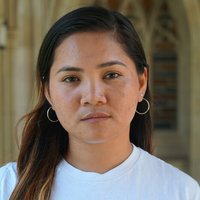Fighting for climate justice in the aftermath of Typhoon Haiyan
I simply cannot accept that our people in the Philippines are dying because of a phenomenon – the climate crisis – that we haven’t even caused.
For me – that’s my ‘why’ – to create an environment where future generations can grow and live their lives, and not just survive typhoons or other disasters. I have experienced that, and I wouldn’t want my children to go through all of that too.
capitalism is sinking communities rather than helping them grow
There’s so much inequality in how we are sharing the finite resources of this earth – capitalism is sinking communities rather than helping them grow. I can’t imagine my place in the Philippines sinking – knowing that it’s been my home, the place that I want to go back to. So I’m seeking justice – not just for me but for the next generation, for our communities, so they can experience the same lives that we have before.
“As a survivor of Typhoon Haiyan, it feels like a moral responsibility to push for change, so I will be able to look into my children’s eyes – knowing that I did something.”
Marinel in the Philippines
As much as it has been a moral responsibility to push for that advocacy, for me it’s also a process of healing. I don’t know if I’ve actually healed because wherever I am, whenever there is a big storm with wind, thunder and lightning, I always feel the need to seek refuge, even if I’m far away from home.
Before we didn’t have any way to process the trauma of that typhoon; we’re just living day by day. So sharing my story has been part of the healing, but that also affects my vulnerability. Whenever there are typhoons and disasters, I don’t know what to do anymore. As much as I can say that I am resilient and as much as I want to say that I’m an expert because I’ve faced a lot of typhoons, the trauma hasn’t been processed. Those lived experiences are the reason why I’m here.
We have already taken the biggest polluters to court and we have won. In 2015, we launched a legal action to the Commission on Human Rights in the Philippines – demanding that the carbon emissions of the 47 Carbon Majors who are present in the country be investigated. After a long battle, we were successful in holding these big companies responsible.
A lot of vulnerable communities around the world are using that legal document as evidence for their own climate justice litigation. It became a landmark petition because no one – no Commission, no human rights institution ever has ever accepted a litigation that was based on human rights before. And the Philippines made a bold decision to accept that, and now it is a precedent for future action. But the ruling wasn’t legally binding, and there is still no policy that would really push these polluters to pay the reparation to the communities who have been impacted.
Shawn Exilus/Oxfam
Climate justice is about making sure that these communities are paid for the loss and damage that they are suffering.”
Marinel in the Philippines
For me [making polluters pay] means Climate Justice. It means the equitable sharing of resources. It means empowering the communities and giving them what they really deserve.
For me, I’m always thinking about how my community is struggling whenever there is disaster, because there are not enough resources to really build strong houses that can withstand extreme weather. We are in the front line of every other disaster. We’re bearing the brunt of the climate crisis that these polluters have caused, and they’re not even helping us be able to survive those disasters. It we don’t survive – these polluters just don’t care.
So climate justice is about making sure that these communities are paid for the loss and damage that they are suffering. So these big polluters have responsibility to make sure that these communities can go back to their lives after a disaster has happened. Most climate impacted communities are living day to day – they are not rich – so we need to make sure these communities can relocate and have a livelihood, where they can continue their way of lives.
Also, it is ensuring that whenever there are disasters, there are typhoon-proof evacuation centers that they can go to; so that their families, communities and their pets and their livelihood are secured. And for me it’s helping communities to not only adapt and to mitigate, but really paying them for the losses and damages that the disasters have caused. Those communities deserve nothing less.
“That’s what it means – for making the Polluter pay is Climate justice. It’s holding polluters to be accountable and liable and pay reparations.”
Marinel in the Philippines
Marinel Ubaldo is a climate activist from the Philippines, who is currently studying in the US. Her journey into climate activism began after experiencing first-hand the effects of Typhoon Haiyan in 2013. Marinel organized the first climate strike in her country. She advocates for a ban on single-use plastics, the reduction of carbon emissions and investments in renewable energy
Shawn Exilus / Oxfam
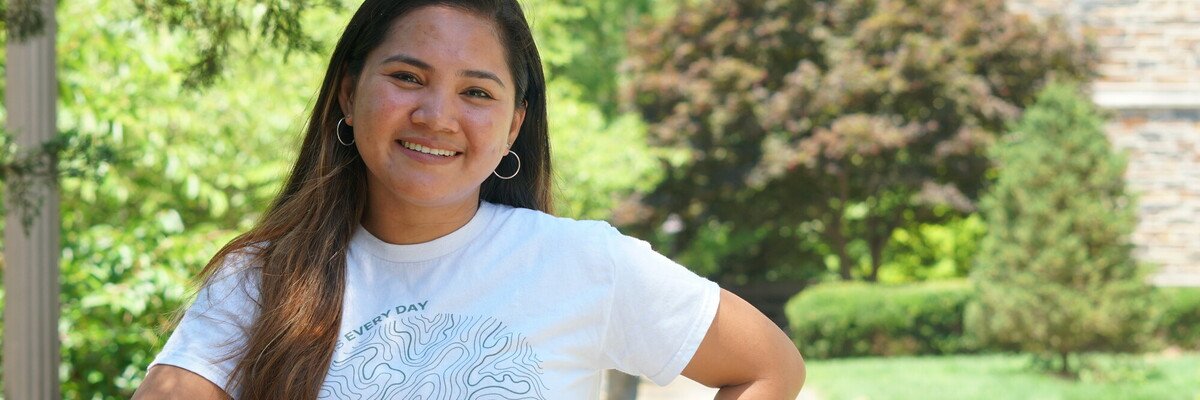
More posts like this
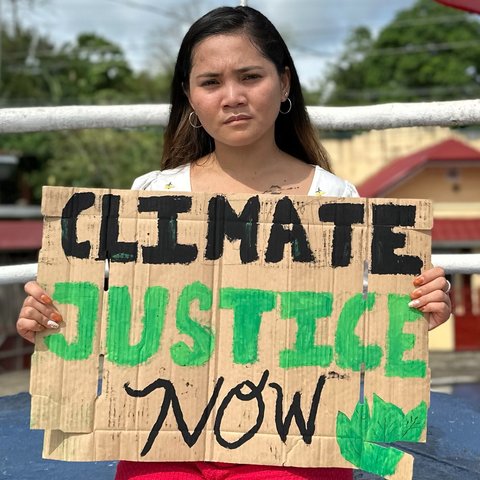
Join communities around the world calling for climate justice.
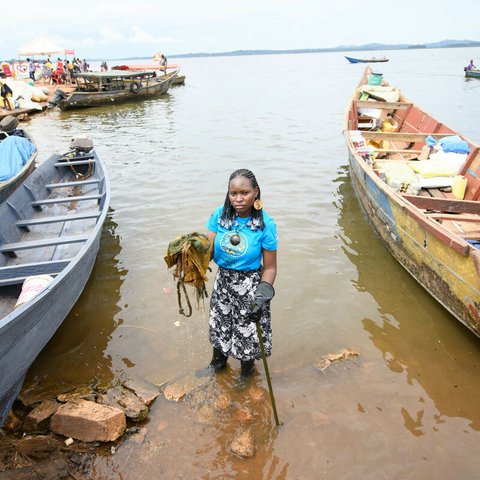
– Coming from my country Uganda, climate activism is not a choice, it’s a daily struggle.
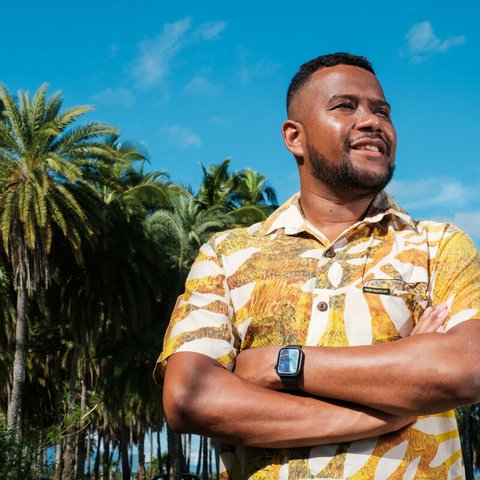
– I come from a community and a country that is at the frontlines of the climate crisis, and I’ve seen first-hand the disproportionate impacts of the climate crisis on our people and our natural ecosystem.
